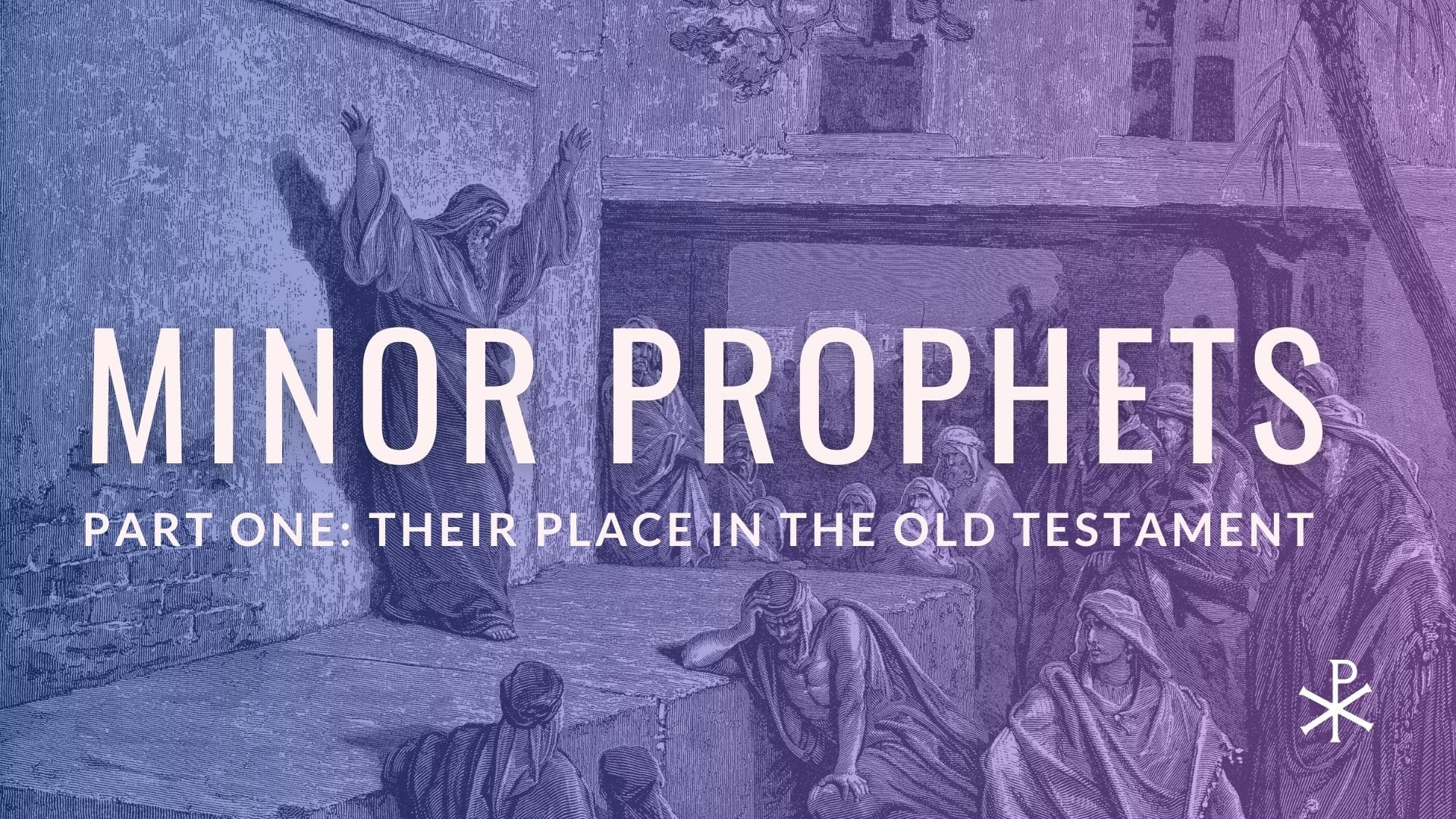Why the Minor Prophets Still Matter: Our New Study
Discover the Minor Prophets—twelve powerful Old Testament books that reveal God’s justice, mercy, and promises fulfilled in Christ.

Tucked near the end of the Old Testament are twelve short books. They’re often skipped, sometimes misunderstood. But they were never minor to Jesus or His apostles. In fact, they’re quoted throughout the New Testament, including the Gospels themselves.
We call them the Minor Prophets, but “minor” has nothing to do with importance. In our culture, we might think of the major leagues and the minor leagues (the minors being developmental, less significant). But that’s not the case here. These prophets were every bit as true and authoritative as Isaiah, Jeremiah, or Ezekiel.
The only difference is length. The “Major Prophets” wrote much larger books. The “Minor Prophets” wrote shorter ones. Nothing more.
In fact, in Jewish tradition these twelve were bound together as one scroll called The Book of the Twelve. That’s a reminder: while each has its own voice, together they form a single prophetic chorus.
So who were they? Why did they speak? And why do their voices still matter?
An Integral Part of the Story
To understand the Minor Prophets, we need to place them in the larger story of the Old Testament.
The Bible opens with creation, then the fall, then the generations from Adam through Noah and the Tower of Babel. In Genesis 12, the story narrows to one man—Abram—whom God calls into covenant relationship and renames Abraham.
God makes sweeping promises to Abraham:
- He will become the father of a great nation.
- His descendants will inherit the land of Canaan.
- They will experience blessing and protection as they walk with the Lord.
- Through them, all nations of the earth will be blessed, a promise fulfilled ultimately in the Messiah.
Abraham and Sarah miraculously bear a son, Isaac. Isaac fathers Jacob, later renamed Israel. Through Jacob’s twelve sons come the tribes of Israel. Joseph, one of those sons, becomes the means of saving his family during famine in Egypt.
By the close of Genesis, Israel’s descendants are living in Egypt. Four centuries later, as Exodus begins, they’ve grown into a multitude. Pharaoh, fearing their strength, enslaves them. God raises up Moses to deliver them with signs and wonders, bringing them through the Red Sea and toward the Promised Land.
From Conquest to Kingdom
At the border of Canaan, Israel’s faith falters. The majority of the spies return with fear, and the people wander forty years before finally entering under Joshua’s leadership. They conquer much of the land, but not all. Judges follows, a grim cycle of sin, suffering, repentance, and temporary deliverance. The haunting refrain sums it up: “Everyone did what was right in his own eyes.”
Israel clamors for a king. God warns them, but gives Saul, then David, then Solomon. David expands the kingdom and brings the ark to Jerusalem. Solomon builds the temple, but his idolatry and oppression fracture the nation. His son Rehoboam’s folly splits the kingdom in two:
- Israel in the north (ten tribes).
- Judah in the south (two tribes: Judah and Benjamin).
The northern kingdom plunges into idolatry and injustice without a single good king. The southern kingdom wavers—some kings faithful, others wicked. Into this history the prophets speak—calling God’s people back to covenant faithfulness.
The Prophets Rise
The northern kingdom falls to Assyria in 722 BC. Judah lasts until 586 BC, when Babylon destroys Jerusalem and the temple. Through it all, God sends prophets, some major and some minor.
- To Israel: Hosea, Amos, Jonah.
- To Judah: Micah, Nahum, Zephaniah, Habakkuk.
- To the exiles: Daniel, Ezekiel, and voices like Obadiah.
- After the return: Haggai, Zechariah, Malachi.
Sometimes God even sends prophets beyond Israel, like Jonah to Nineveh. Their words expose idolatry, injustice, religious hypocrisy, and spiritual apathy. Yet they also hold out hope: a faithful remnant, a shepherd struck for His people, a fountain for cleansing, a day when the nations would be blessed.
Between the Testaments
When Malachi’s prophecy closes, about 400 years pass before the New Testament begins. This period produced Jewish writings (the Apocrypha), which hold historical and devotional value but were never part of the Hebrew Scriptures Jesus and His disciples received as authoritative.
By the time John the Baptist appears in the wilderness, the people have waited centuries for Malachi’s promised messenger.
Why Study the Minor Prophets Today?
These twelve short books are not relics of a dead age. They are God’s Word—living and active.
- They reveal His justice, mercy, patience, and covenant love.
- They remind us that judgment and hope are never far apart.
- They show us Christ in advance—the one in whom every promise finds its “Yes.”
The New Testament writers knew this well. Jesus Himself quoted Hosea 6:6—“I desire mercy, not sacrifice”—to expose shallow religion (Matt. 9:13). The apostles pointed to Amos 9:11 to show that the gospel’s spread to the nations was God’s ancient plan (Acts 15:16–17). The Minor Prophets weren’t background noise—they were central to understanding Christ.
And they still are. Their world of political upheaval, cultural collapse, social injustice, and religious apathy doesn’t feel far from ours. Their message—that God calls His people to covenant faithfulness and points us to Christ—lands with renewed urgency today.
An Invitation
So as we study the Twelve together, we’re not just learning history. We’re responding to God’s call, repenting where we’ve wandered, finding hope in His promises, and following the voice of Jesus, the one to whom they all point.
In our next post, we’ll begin with Hosea—the prophet whose own heartbreak became a living parable of God’s relentless love.
